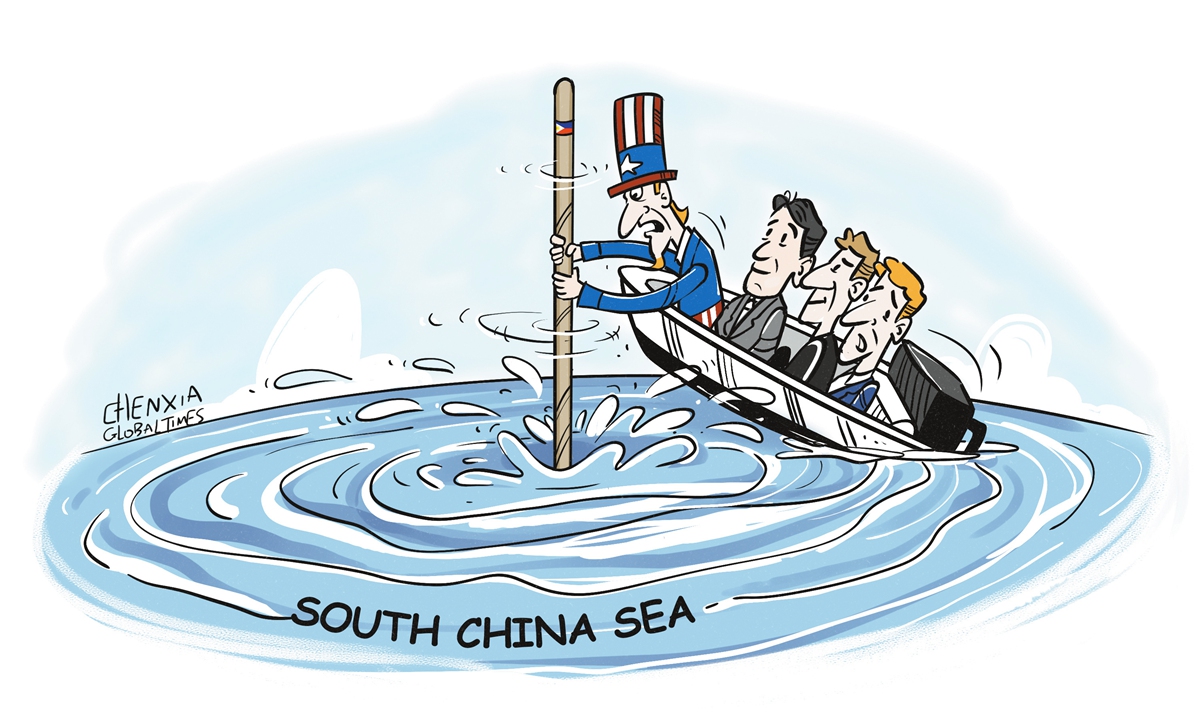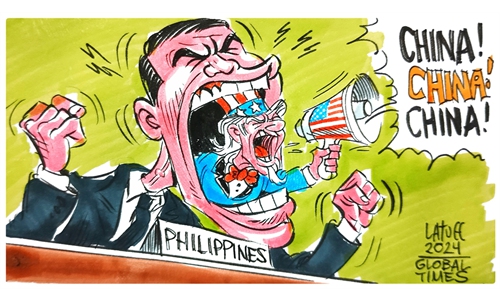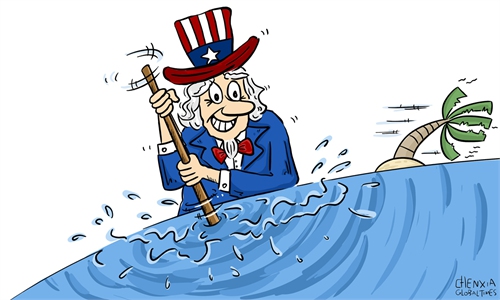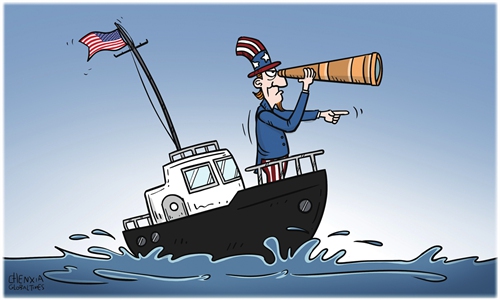Behind Manila’s S.China Sea provocations a small circle of external tension fuelers

Illustration: Chen Xia/GT
In recent weeks, the Philippines has made numerous attempts to resupply its illegally stationed coast guard vessel at China's Xianbin Jiao in the South China Sea. On Saturday, the Philippine Coast Guard vessel MRRV-9701, which illegally intruded and anchored in the lagoon of Xianbin Jiao since April, weighed anchor and intentionally rammed into the Chinese Coast Guard (CCG) ship 5205.
The truth behind the tensions is clear. If any side carried out "destabilizing and unacceptable" conduct, posed serious risks of harm to crew, and undermined commitments to de-escalate tensions in the South China Sea, it was the Philippines. However, some US allies, following the US' step, have rushed to the forefront to exacerbate the situation. The EU released a statement on Sunday condemning the "dangerous" actions by CCG vessels against Philippine maritime operations in the South China Sea. The Australian government also expressed deep concerns on Monday about "a series of dangerous and aggressive actions by China against the Philippines."
Disregarding facts, US and its allies have decided to stick their noses where they don't belong and thrown their "support" behind the Philippines' provocative actions against China's territorial sovereignty in the South China Sea. This goes against the regional pursuit of peace and stability.
Interfering with China's disputes with other countries or even China's domestic affairs has long been a tactic employed by the US and its allies. By exploiting the South China Sea issue, they may intend to display the "reliability" of the US alliance system. However, this only exposes their nature as a small circle of tension fuelers and disruptors to peace. By taking sides and backing provocative actions in the South China Sea, they are only adding fuel to the fire and making it harder for parties involved to find a peaceful solution.
Ma Bo, an associate professor at the School of International Studies at Nanjing University, told the Global Times that the statements made by US allies regarding the South China Sea serve two main purposes. "First, they attempt to portray China as a violator of international laws and the status quo, while shaping themselves as a 'guardian.' Second, they align with the US' 'Indo-Pacific Strategy' to contain China's influence in the region. After all, they seek to maximize their gains with minimizing costs," said Ma.
With such provocation and incitement from the US and its allies, tensions may heighten up in the region. The Philippines can easily be emboldened and take more aggressive actions in the sea, reducing the possibility that China and the Philippines ease the current tensions through dialogues.
ASEAN countries are clear about the situation and have long been committed to properly managing and resolving disputes through dialogue and consultation between states directly involved in the South China Sea issue. This cool-headed and prudent approach tries to help keep the situation calm. Regional countries are already on high alert over the involvement of external players and want to avoid a return of Cold War thinking and bloc confrontation back to the region.



